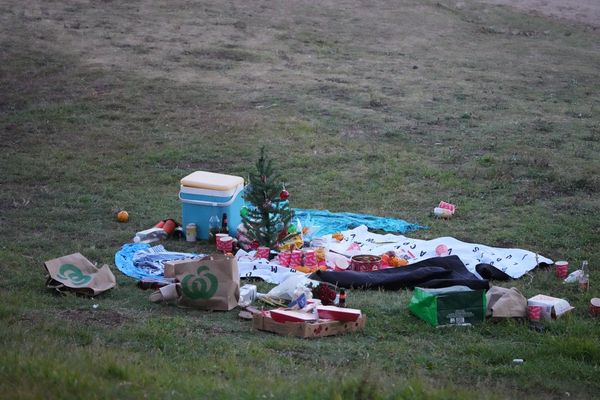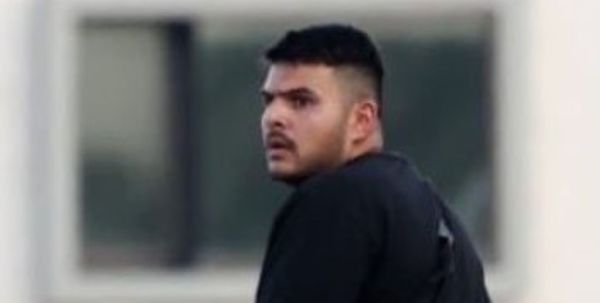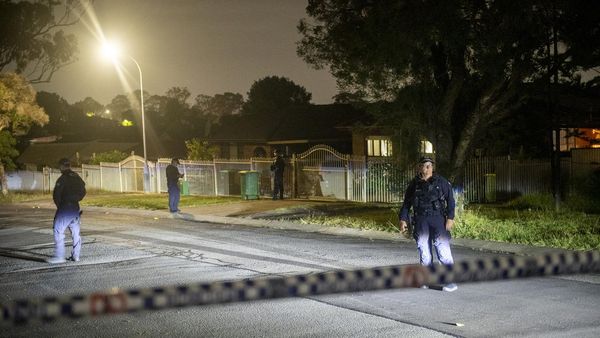
“We’re going in,” Donald Trump said on Tuesday, when asked whether national guard troops would be sent to invade Chicago. The comment came as reports emerged that national guard troops from Texas – not yet federalized under direct presidential control – were preparing to deploy to Chicago in the coming days, in defiance of the opposition repeatedly and forcefully expressed by the Chicago mayor, Brandon Johnson, and the Illinois governor, JB Pritzker, both Democrats.
The White House and the president’s allies have claimed that the deployment is a response to violent crime in Chicago. This is a lie. Crime in Chicago has dropped dramatically over the past decades, as it has in every major American city – including Los Angeles, where Trump deployed the national guard and the marines earlier this year, and Washington DC, where armed federal agents have patrolled the streets for much of the past month. The deployment of armed forces to American cities – serving at his pleasure even when they are not officially under his direct command – has nothing to do with “crime”, except insofar as the administration has sought to redefine the term to mean Democratic governance, racial pluralism or the presence of immigrants. There is no violent crime in Chicago, or in any of these cities, that federal troops can be usefully deployed to quell.
Instead, the federal agents who will probably invade Chicago in the coming days are there to serve a very different purpose. They are there to assert Trump’s personal authority over government actions, to intimidate populations that did not vote for him, to terrorize and kidnap immigrants and destroy their families, and to make sure that every American knows that even if they succeed in electing Democrats to run their cities and states, the Trump regime can send armed men to their neighborhoods who answer to Republicans.
As Trump expands his military occupation of opposition-controlled cities, the chances of a violent confrontation between armed agents of the regime and ordinary Americans rise dramatically. American city dwellers have not yet been terrified into silent submission; many of us still retain the self-respect that has been engendered by a lifetime of democratic citizenship. These people will inevitably, and righteously, protest the Trump administration’s incursions. They will shout with outrage when they see their neighbors dragged into vans by masked men; they will jeer and mock the jackboots sent to terrorize them. Eventually, it seems inevitable that someone will throw a rock, or slam a door too loudly, or frighten one of the masked, armed men who knows he has been deployed by an unpopular ruler to suppress a once-free public. And one of those men, terrified and hate-filled and ashamed, might, in that moment, fire his gun. By sending troops into cities that do not support him, the Trump administration is assembling kindling in neat stacks around a frayed and fragile civic peace; they are pouring lighter fluid, and lighting a match. They are hoping for a conflagration that will provide an excuse for even more brutality.
It seems almost naive to ask if any of this is legal. The supreme court has made it clear that the president – or, at least, this president – has virtually no limits on his authority under conditions of an “emergency”. That no emergency is in evidence in Chicago or any of the other opposition-controlled cities that Trump-aligned forces are invading is irrelevant: an “emergency”, like a “crime”, can be whatever Trump wants it to be. The supreme court will, eventually, either greenlight Trump’s actions or delay intervening against him for long enough that he will be able to accomplish his aims anyway.
But lower courts are showing more willingness to check Trump’s more flagrantly illegal conduct – at least temporarily. In California on Tuesday, a court ruled that Trump’s deployment of the marines and the federalized California national guard into Los Angeles earlier this year violated the Posse Comitatus Act, an 1878 law that prohibits the use of federal armed services to enforce domestic law. But in Chicago, the Trump administration is trying a workaround: according to Pritzker, the troops that are amassing are un-federalized members of the Texas national guard – technically under the command of Greg Abbott, the governor, though unambiguously serving the president’s aims. If Pritzker’s claim – which Abbott’s office has disputed – is true, then the theory is apparently that Republican-controlled states have the authority to send their own troops into Democratic- controlled states – against the wishes and without the permission of the local authorities – to enforce partisan policy preferences.
Pritzker, in an attempt to calm his people and prevent needless violence, implored Chicagoans to “not take the bait”. And certainly the ground forces will create some viral video moments that the president will enjoy posting to his followers. But the line between what is a mere performative display of power and what is an actual seizure of power is no longer quite clear. The boots and the guns, at any rate, are real.
Moira Donegan is a Guardian US columnist







